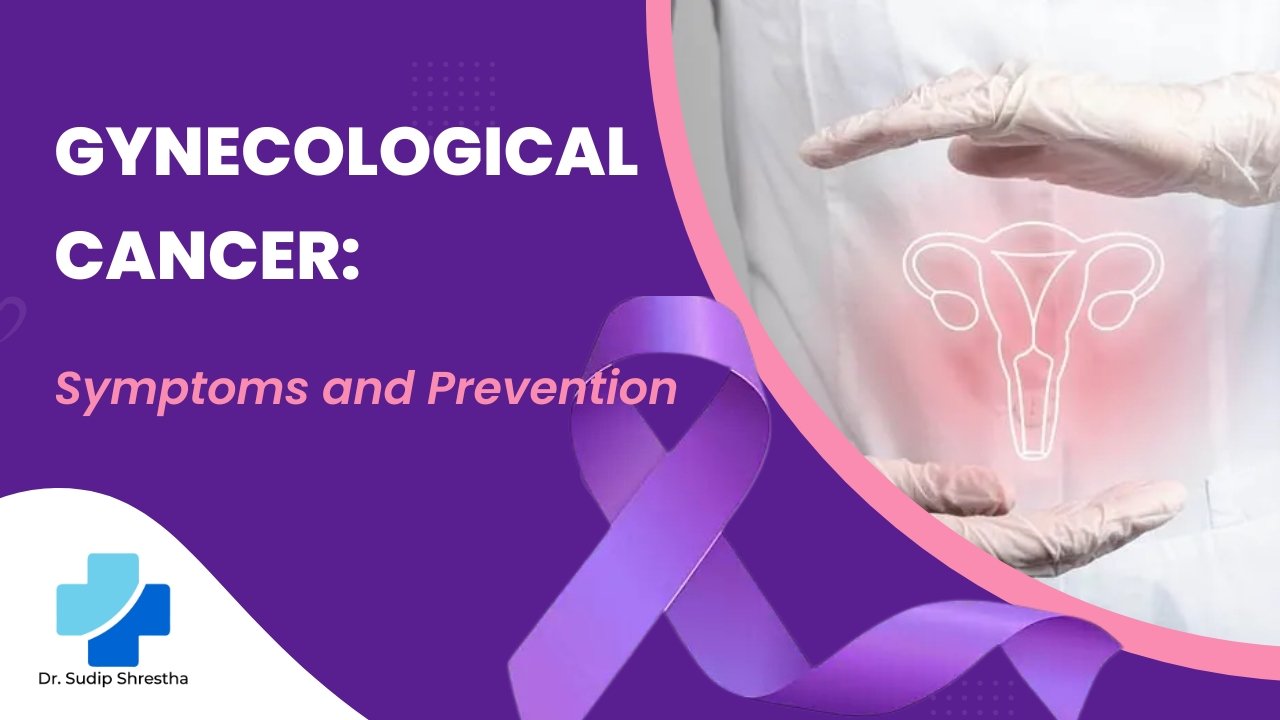Gynecological cancers affect the reproductive organs of women, making early detection critical for successful treatment. These cancers include cervical cancer, ovarian cancer, uterine cancer, vaginal cancer, and vulvar cancer. Understanding the symptoms and adopting preventive measures can help women reduce their risk. Dr. Sudip Shrestha, a leading oncologist in Nepal, offers expert insights into gynecological cancer symptoms and prevention strategies.
What is Gynecological Cancer?
Gynecological cancer refers to cancers that start in a woman’s reproductive organs. Each type has unique risk factors, but early detection significantly improves treatment outcomes. Dr. Sudip Shrestha, with years of experience in gynecological oncology, stresses the importance of recognizing symptoms and taking preventive measures.
Types of Gynecological Cancer
- Cervical Cancer: Most commonly linked to the Human Papillomavirus (HPV), cervical cancer affects the cervix, the lower part of the uterus.
- Ovarian Cancer: Often undetected until its later stages, ovarian cancer can be challenging to treat.
- Uterine (Endometrial) Cancer: This cancer occurs in the lining of the uterus and is often identified early due to abnormal vaginal bleeding.
- Vaginal and Vulvar Cancer: While less common, these cancers can still be dangerous if not diagnosed early.
Gynecological Cancer Symptoms
Dr. Sudip Shrestha highlights the importance of regular health check-ups, as many gynecological cancers do not show symptoms in the early stages. However, there are several gynecological cancer symptoms women should be aware of:
- Abnormal vaginal bleeding: Especially after menopause or between periods, this may indicate cervical cancer or uterine cancer.
- Pelvic pain or pressure: Constant discomfort in the lower abdomen could be a sign of ovarian cancer or uterine cancer.
- Unusual vaginal discharge: Discharge that is foul-smelling or discolored may be a symptom of vaginal cancer or cervical cancer.
- Changes in urination or bowel movements: Frequent bathroom trips or pain during these actions may indicate ovarian cancer or uterine cancer.
- Itching, burning, or pain in the vulvar area: These could be symptoms of vulvar cancer and warrant a visit to a healthcare provider.
If you experience any of these symptoms, Dr. Shrestha advises scheduling an appointment with a doctor for further evaluation.
Gynecological Cancer Prevention Tips
While some factors like age and family history are uncontrollable, Dr. Sudip Shrestha outlines several effective gynecological cancer prevention strategies:
- Get the HPV Vaccine: The HPV vaccine is one of the most effective ways to prevent cervical cancer. It protects against the high-risk strains of the virus that are responsible for the majority of cervical cancer cases.
- Regular Pap Smears and HPV Testing: Dr. Shrestha advises women to undergo regular Pap smears and HPV tests starting at age 21. These screenings are vital in detecting cervical cancer early, before it has a chance to spread.
- Healthy Lifestyle Choices: Maintaining a healthy diet, exercising, and managing your weight can help lower the risk of ovarian cancer and uterine cancer. Dr. Shrestha recommends avoiding smoking and limiting alcohol consumption, as these habits can increase cancer risks.
- Know Your Family History: If you have a family history of gynecological cancers, consider genetic testing. BRCA1 and BRCA2 gene mutations, for example, increase the risk of ovarian and breast cancer. Consulting a healthcare provider about your genetic risks may help identify potential preventive measures.
- Stay Informed About Menstrual Changes: Keeping track of your menstrual cycle and noting any irregularities can lead to early detection. Heavy or irregular periods may be a symptom of uterine cancer and should be evaluated by a doctor.
- Regular Gynecological Check-ups: Dr. Sudip Shrestha strongly recommends scheduling regular visits with your gynecologist to monitor for any unusual changes. These exams can catch early signs of cancer, allowing for prompt treatment.
Expert Care from Dr. Sudip Shrestha
For those concerned about gynecological cancer symptoms or prevention, seeking professional care is essential. Dr. Sudip Shrestha is a well-respected oncologist in Kathmandu, specializing in the diagnosis and treatment of cervical cancer, ovarian cancer, and other gynecological cancers. With his vast expertise, Dr. Shrestha emphasizes the importance of early detection and patient education.
Women who experience any unusual symptoms or are at risk due to family history should schedule a consultation with an experienced oncologist.
Conclusion
Gynecological cancer prevention and early detection are key to improving survival rates. Understanding the symptoms of cervical cancer, ovarian cancer, uterine cancer, and other gynecological cancers can lead to timely medical interventions. By following preventive measures like getting the HPV vaccine, undergoing regular screenings, and maintaining a healthy lifestyle, women can reduce their risk. If you have concerns, Dr. Sudip Shrestha, a leading oncologist in Nepal, is here to provide expert care and guidance.



